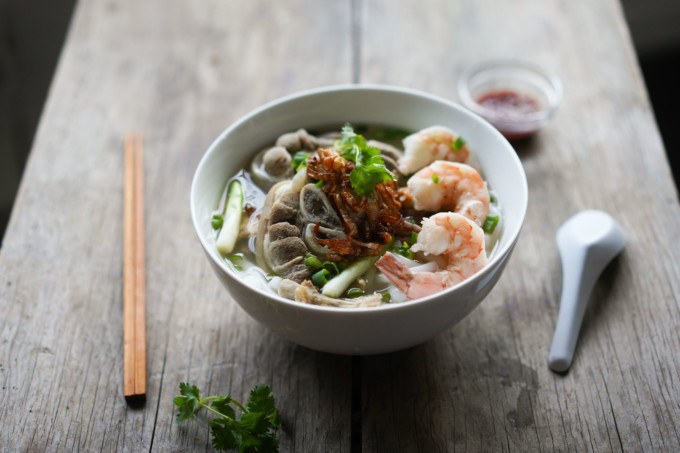Bánh canh giò heo tôm might be a lesser known Vietnamese soup compared to the highly popularized phở, but its hearty flavor paired with springy tapioca noodles, and a load of meat and shrimp makes it just as delicious.
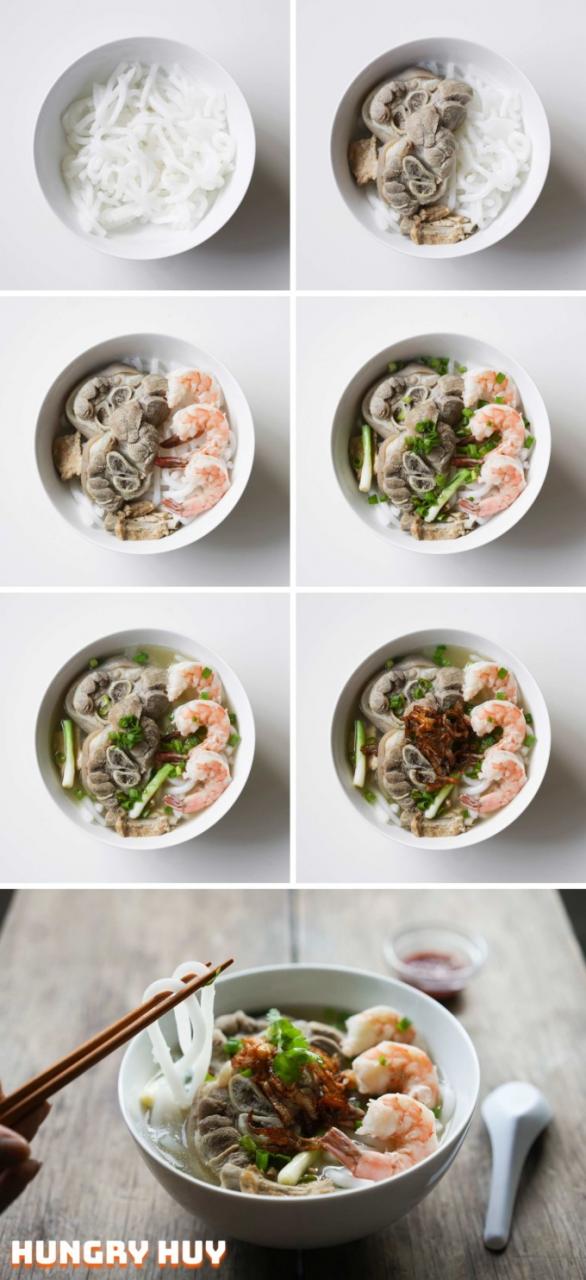
This dish can seem similar to bún bò Huế, but it uses different noodles, is less spicy and quite a bit heavier with the use of pork stock and thicker noodles.
Bạn đang xem: giò heo
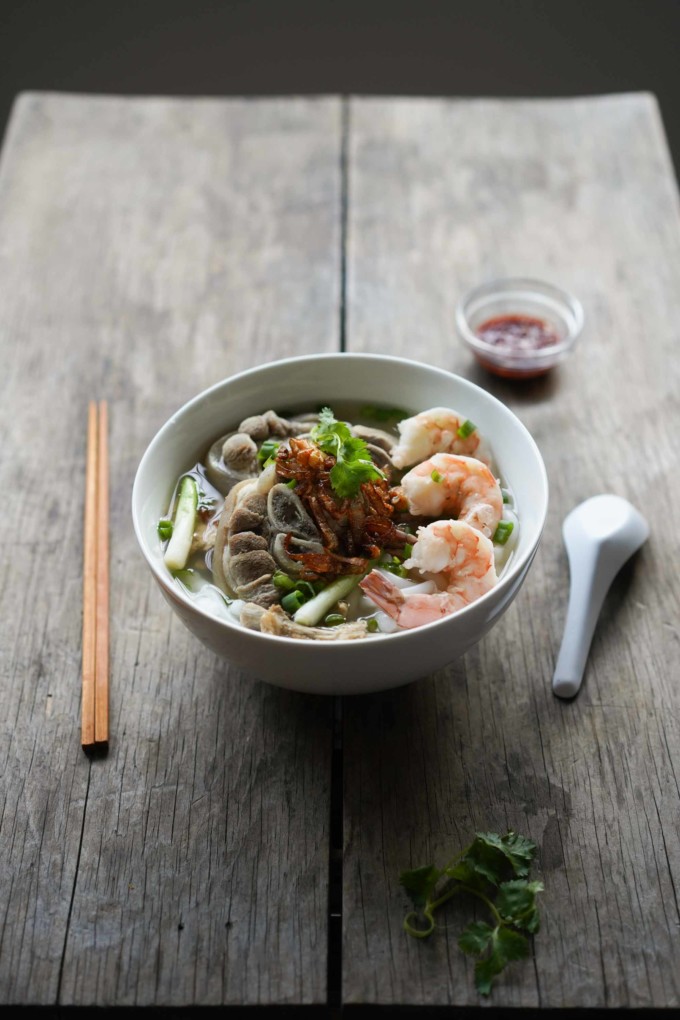
Đọc thêm: Chỉ bạn Cách làm mứt dừa có màu xanh đẹp từ matcha, lá dứa, đậu biếc
Bánh canh directly translates to “noodle soup” or “soup cake” and has origins in central Vietnam. The term comes from the flattened shape of the noodles before they are cut into strings. It’s best not to think too hard about its English translation.
Bánh canh noodles
The texture of bánh canh is chewy and the appearance can also be quite translucent depending on the ratio between the flour and water.
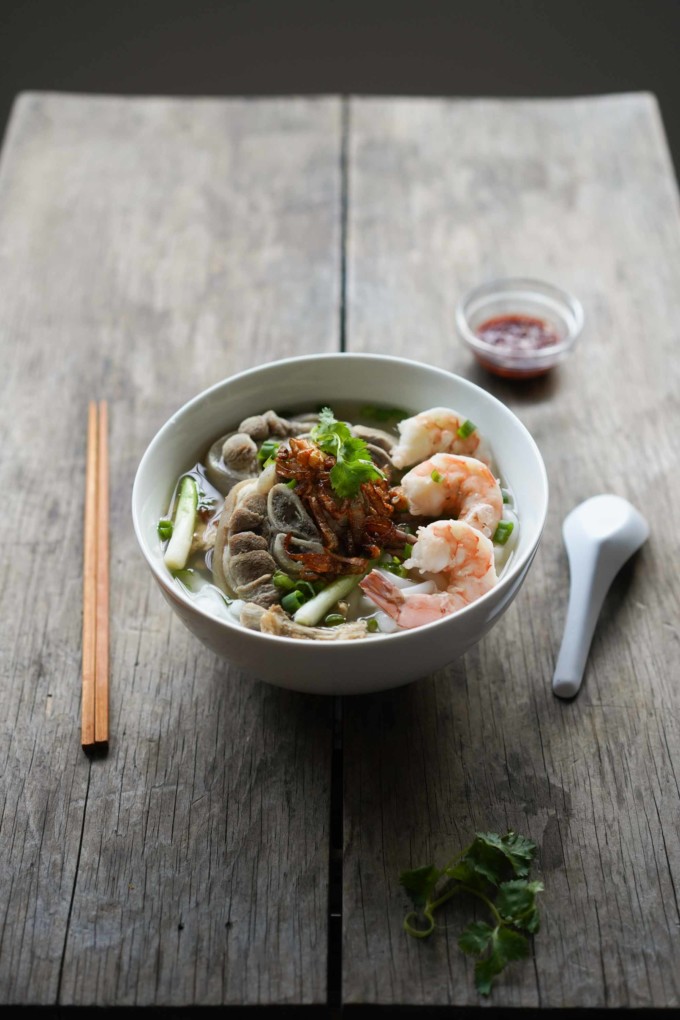
While it slightly resembles its Japanese cousin, udon, bánh canh is made from tapioca flour, rice flour, or a mixture of both as opposed to using wheat flour. However, if you’re in a bit of a bind and can’t find bánh canh noodles, you can substitute them with udon for this recipe.
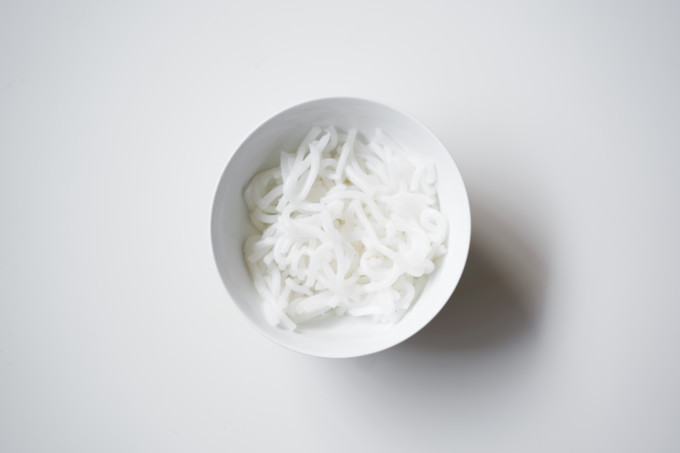
Bánh canh variations
Đọc thêm: Hot {Bánh trung thu} Nhân thập cẩm & Nhân sữa dừa
It’s important to note that there are many types of variations for this soup and you can customize it to your liking. For example, bánh canh cua is a thick crab soup that is topped with crab legs, shrimp, and other seafood.
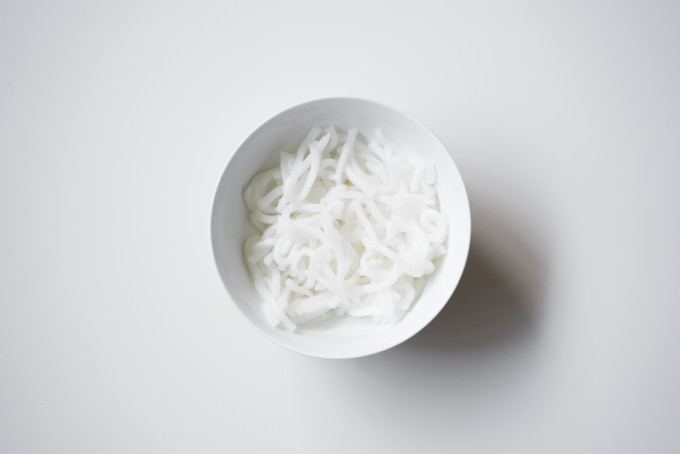
Bánh canh giò heo tôm is one of the most popular iterations of bánh canh soup that you can find in Saigon and it is made with a rich stock of pork hocks. My mom’s recipe also adds shrimp to this dish for variation and a familiar ‘surf and turf’ combo you see in spring rolls (goi cuon).
Some people like to top off their soup with bean sprouts and other greens, but I like to top off my bánh canh giò heo with fresh green onions, fried shallots, and cilantro.
